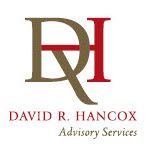As one more example of the need for auditors to step up their efforts to find fraud, The Securities Exchange Commission announced that it has obtained a court order freezing the assets of China Voice Holding Corp., which trades in over-the-counter markets and has claimed to have a portfolio of telecommunications products and services in both the U.S. and China. The SEC alleges that China Voice’s co-founder and his two associates are operating an $8.6 million Ponzi scheme and misusing its proceeds, in part, to help fund the company’s operations.
The SEC alleges that David Ronald Allen, who also was China voice’s chief financial officer, and his associates Alex Dowlatshahi and Christopher Mills promised investors in a series of offerings of limited partnerships that they would earn returns of at least 25 percent on their investments. Investors were falsely told that their money would be loaned to companies with a demonstrated track record and large profit margins. Instead, Allen and his cohorts used investor funds to pay back investors in earlier partnerships and funneled investor money to China Voice and a complicated web of other companies that Allen controls. Allen and his associates also siphoned investor money to enrich themselves and family members.
In light of this enforcement action, I wondered what the auditor had said?
Audit fees for the years ended June 30, 2008 and 2009, and review of financial statements for the initial Form 10Q for the period ended December 31, 2008 and the Form 10Q for the Quarter Ended March 31, 2009 totaled $376,970.
The following year the Company has not been able to produce an audit because of material uncertainties regarding its viability and asset valuations.
Audit fees for the years ended June 30, 2009 and 2010, and review of quarterly financial statements totaled $353,431.
Good for the auditor to have the courage to not issue an opinion! Unfortunately, the auditors were again not able to find the fraud that existed and it took the efforts of an outside regulator to uncover the potential fraud.
But wasn’t there at least one red flag that the auditor should have spotted and pursued? When the CFO promises investors in a series of offerings of limited partnerships that they would earn returns of at least 25 percent on their investments – shouldn’t all sorts of bells gone off for the auditors?
I learned that simple concept when I was in college and I brought an investment opportunity I was considering to my friend, a former vice-president of Merrill Lynch. He said the rate of return was too good to be true and to steer clear of this fraudulent transaction. Shortly thereafter, he was proven right!
Auditors have to listen and to increase their level of professional skepticism if they have any hope of finding the fraud that may exist in the companies they audit.
